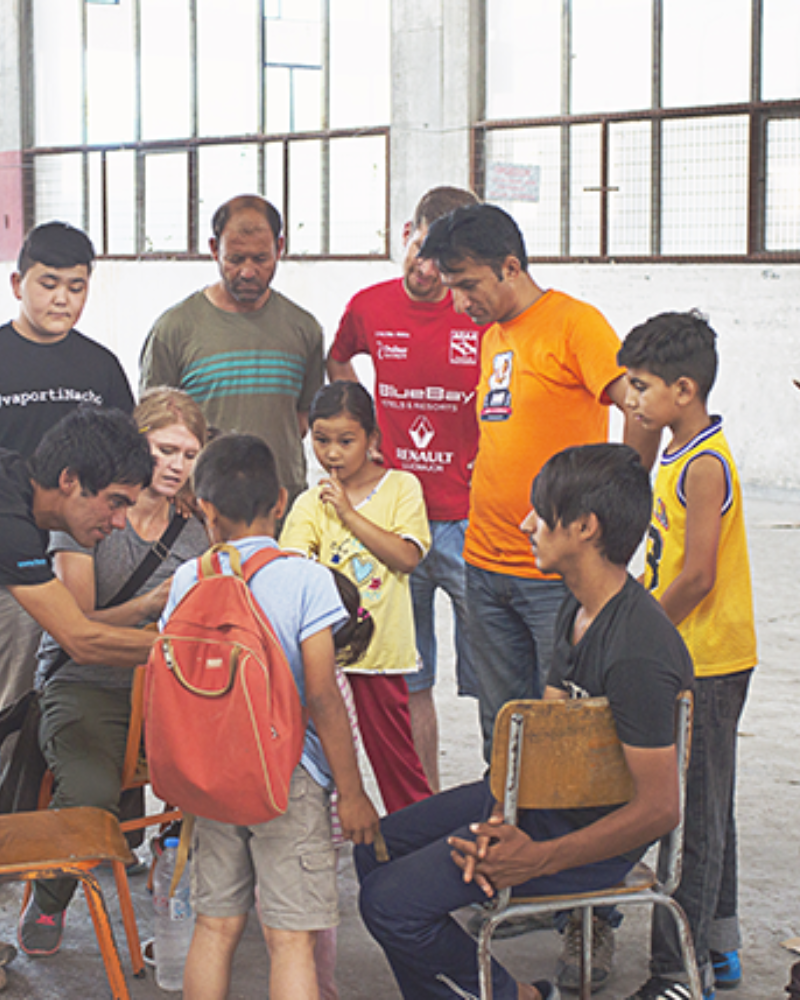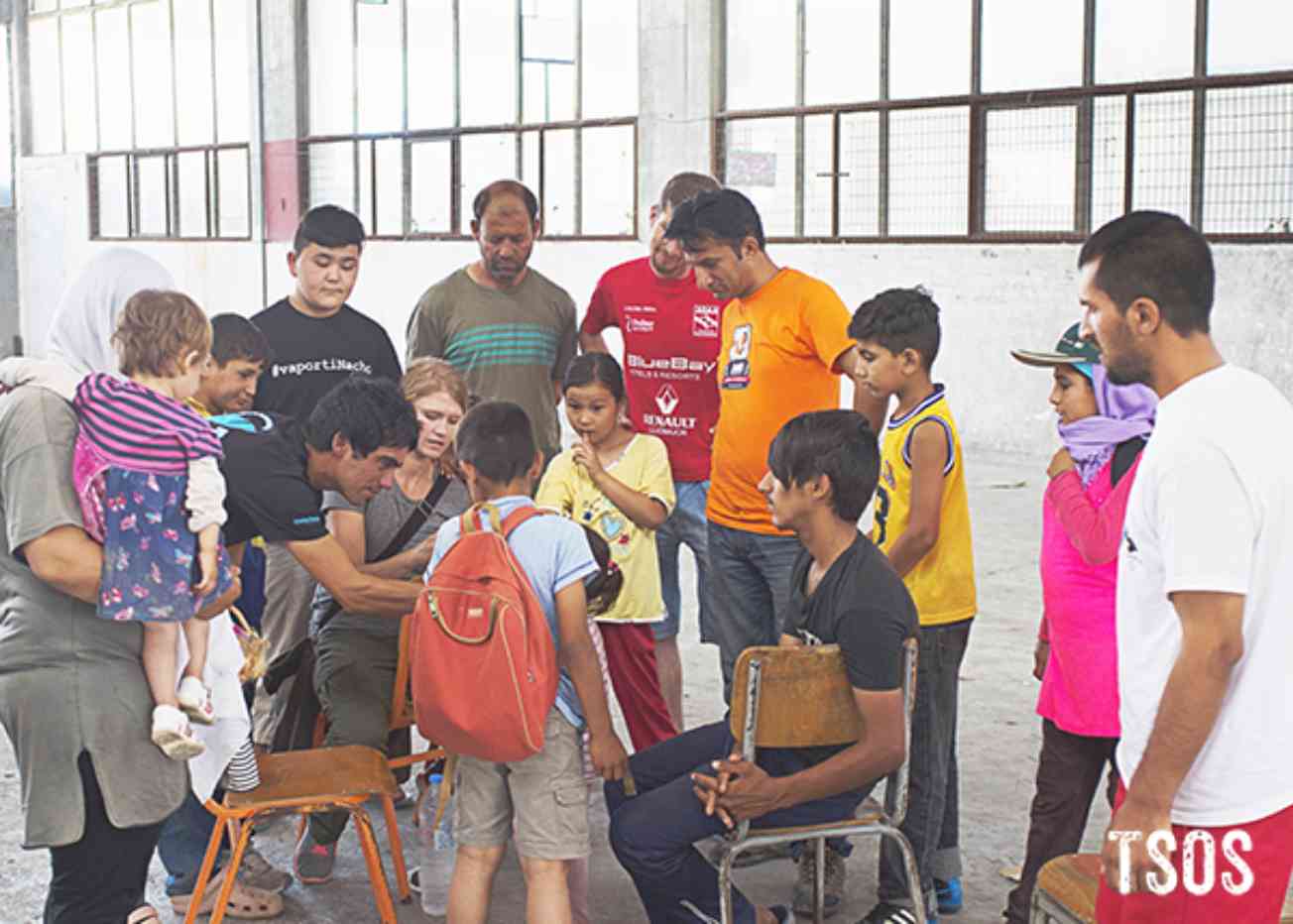Our Greatest Weapon is Love
Our greatest weapon against all workers of terror is love.

Writing by Elizabeth Thayer
Photography by Lindsay Silsby
Written by Elizabeth Thayer
Photographs by Lindsay Silsby, TSOS
“I want to tell you my story,” he said, shaking his head. “It is hard. Very hard.” It was hot and dry and I was standing in the middle of a refugee camp in Greece. Men, women and children milled around, sluggish from heat and fasting, interested in our cameras, microphones and sketchpad. One by one, they lined up to tell us their stories.
I had traveled there with a photographer and a filmmaker to learn the stories of individual refugees and share them through art. As they talked, it was as though a small part of their burden was given to us. And we brought it home to share. There is much that I have learned in the months since I set out to see for myself what the ‘refugee crisis’ was all about.
I learned that they are people just like us. They left behind good lives, jobs and homes. They have been through very traumatic events, harrowing journeys, and still wait in uncertainty, often separated from family members. Most have lost nearly everything, and among the few things they cling to are dignity and hope. Being able to tell their stories strengthens both.
Roya is one of the lucky ones. She has known war almost her entire life. As a Shiite in a Sunni muslim system, she has also known constant, open discrimination. Strong and intelligent, she was harassed for working outside the home as a teacher. She was brutally publicly beaten for educating other women about their rights. When her equally intelligent and strong-willed daughter also started getting death threats, they decided to leave. Roya traveled on foot with four of her children. They walked a distance the equivalent of Seattle to New York, braved an open sea journey, and gave thousands of dollars to unreliable smugglers to get them to safety. She made it to Germany before borders closed; her children are able to attend school, and they are awaiting asylum.
Ali lost his left leg at the age of 14 when a car bomb exploded on his way to school. After his village was attacked, he helped bury the bodies of 355 friends, neighbors and family. Then he left, walking on a scavenged prosthetic leg, often carrying his small nieces and nephews. Through the generosity of others he has found a new leg and a hopeful place.
Musa, like most of them, is still waiting. Because of his work for the Afghan army, he was attacked. He barely survived the bombing and is now out of imminent danger, but still must keep his identity secret. Musa lives in a refugee camp with his parents, disabled brother, wife, and newborn son, anxious to work, to do something, but only given the option to wait and wait some more.
There are so many stories, so many people like you and me. Zarrin, whose life was threatened for teaching in a girls school. Akhtar, whose successful business was bombed to oblivion. Omed, a ten-year-old chess whiz. An anesthesiologist, a reporter and track star, a taxi driver and a medical technician.
The refugee crisis is far from over. Any solution requires help from all sides and there is much that can be done from afar. Needs are various (including food, legal aid, moral support, friendship, language and job training, medical and psychological care, and political action), as are our own resources and skills. Resources and ideas can be found on our charity’s website, www.tsosrefguees.org. We invite all to share these stories via social media or word of mouth. Look for Their Story is Our Story (TSOS) on Instagram, Facebook, Twitter and YouTube.
Our greatest weapon against all workers of terror is love. We all have “refugees” around us. This might include an immigrant, an outcast, an estranged family member, someone that is overlooked or left out. As we reach out in love to those in need, especially when we don’t understand them, we are serving the refugee. I found, in a small camp in Greece, that what these scarred, scared, gracious people really need is what all people need. Love. They need someone to reach out and take them in.

Our team members obtain informed consent from each individual before an interview takes place. Individuals dictate where their stories may be shared and what personal information they wish to keep private. In situations where the individual is at risk and/or wishes to remain anonymous, alias names are used and other identifying information is removed from interviews immediately after they are received by TSOS. We have also committed not to use refugee images or stories for fundraising purposes without explicit permission. Our top priority is to protect and honor the wishes of our interview subjects.